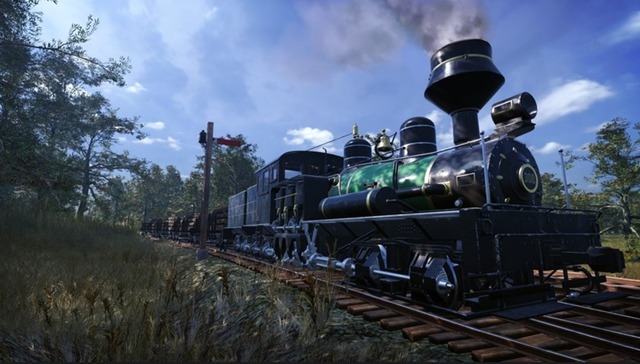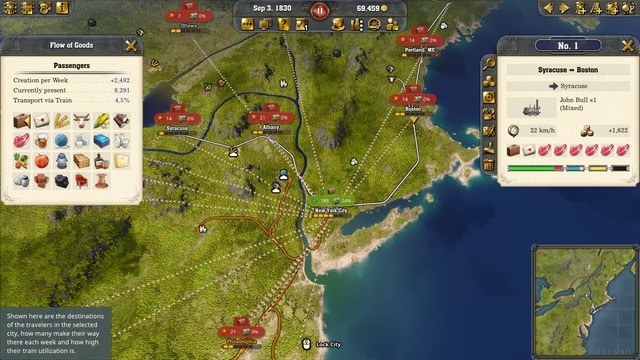Railway Empire 2 Flow Of Goods, Export, Import & Empty Freight

In the world of Railway Empire 2, the efficient transportation of goods is crucial for the success of cities and industries. Locomotive trains play a vital role in the import and export of commodities, connecting cities and factories across vast landscapes. To optimize trade and meet the needs of citizens, understanding the flow of goods and demand is essential. This article delves into the intricate workings of Railway Empire 2, exploring how to identify profitable goods for different cities, manage production and demand, and establish effective transportation networks. Discover the key strategies to build thriving cities and prosperous industries in this immersive railway simulation game.
Railway Empire 2 Flow Of Goods, Export, Import & Empty Freight

The transportation of commodities between cities is facilitated by locomotive trains, either for export or import purposes. To ascertain the specific goods being sent to each city, you can simply click on the “Flow of Goods” icon located in the top left corner. This feature provides valuable insights into the most lucrative goods for each destination city.
To determine the needs of the citizens, you must first select a city and click on the crate icon labeled “Stock and Demand of the City.” This will provide you with information on the goods required by the citizens as well as the goods produced within the city. The demand for a product decreases if there is an excess of goods in stock.
The following is a list of goods required for industrial production in Railway Empire 2:
- Livestock – Meat
- Grain – Beer
- Wool – Cloth
- Cloth – Clothing
- Lumber – Wooden Plank
- Sugar & Fruit – Liquor
- Milk – Dairy Product
- Wooden Plank – Furniture
- Clay & Coal – Ceramics
These goods can be found in factories, where you need to establish a train station and connect track lines in order to transport them from the factories to the cities. Some cities also feature factories that require raw materials in order to produce these goods. Insufficient raw materials can result in slowed or halted production. For instance, livestock is necessary for the production of meat. To import livestock, you need to connect a train line from Green Stop to Boston.
Similarly, the residents of Boston have a fondness for beer. Therefore, you must connect Albany, which houses a beer factory, to the train station in Boston in order to import beer. This will lead to an increase in the number of citizens residing in Boston. While small cities typically have only one type of industry, larger cities like New York can accommodate two industries.
You can acquire a specific industry in a city by participating in bidding and subsequently demolishing the existing industry to make space for a new one. However, it is crucial to ensure that you possess sufficient funds to finance all the construction. To purchase an industry, you need to zoom in on a city, select the industry, and then find the option to bid for its acquisition on the left side of the name.
Note: Placing a train station near any industry will allow you to import the raw materials produced by the industry to the city. If you have found a locomotive with empty freight going to and fro from the cities or industry, that means the city inventory is full and no more goods can be added. Else the industry doesn’t have sufficient stock of goods to export.